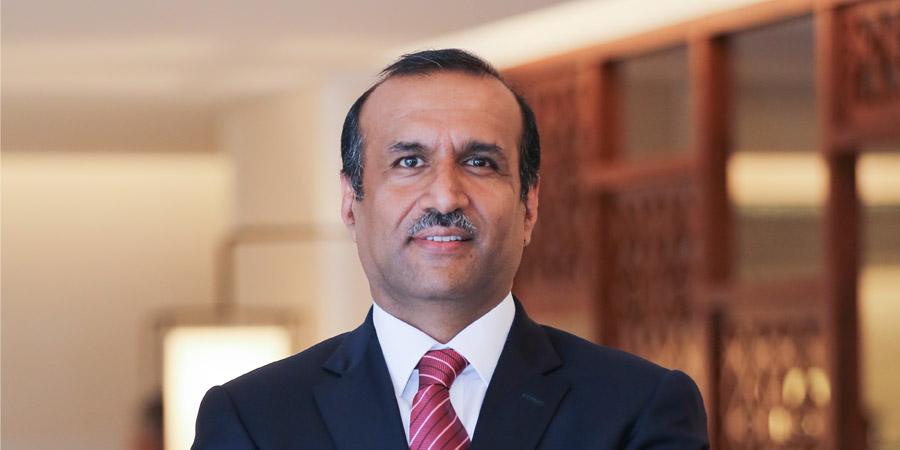Highlighting the company’s unique selling point and its contribution in establishing GCC as the next international hub, Telecom Review had an exclusive interview with Sohail Qadir, CEO, Zain Omantel International (ZOI) during Capacity Middle East 2024.
After nearly a year of operation, how did ZOI provide unique services to both regional and international customers, with the goal of revolutionizing the telecommunications wholesale industry?
Since our inception, almost a year ago, we started a transformative journey leveraging the combined strengths of Zain and Omantel across 8 countries under a consolidated international network. This allowed us to offer a wide range of services including — roaming, SMS, voice, data, connectivity and internet— directly benefiting our operational companies (opcos). But our main vision is to operate as a wholesaler for the whole region and beyond, providing services for international companies and partners.
As we expand our network, starting with Muscat and Salalah in Oman and extending to Saudi Arabia and beyond, working with our shareholders and partners Zain Group and Omantel. Towards the end of this year, we expect the data center in Salalah (SN1) with Omantel to be up and running and provide services with our partner Equinix. We’re also planning a data center in Riyadh with Zain KSA, and looking into a data center project in Jordan with Zain Jordan. We are also deploying a network in Jordan, with network expansions underway in Kuwait, Bahrain and Iraq.
Our network serves up to 60 million subscribers; providing access to all international operators and hyperscalers to the region. We are planning to deploy a submarine cable network that will connect key points across Asia, Africa and Europe.
We are building multiple data centers across the region, which are designed to operate seamlessly, offering a one-stop shop for all international hyperscalers, and submarine cable systems. Submarine cable systems from Asia will land in Oman and the submarine cables systems from Europe will land in Saudi Arabia, and from there, they will have full access to the carrier neutral data centers.
On other fronts, the integration of teams and networks on the roaming and voice side is something that we have already accomplished.
Our aim is to make the Middle East a global digital hub. We are tirelessly working towards achieving this by 2025.
Given the substantial investments and advancements in subsea technologies, what strategy has ZOI devised to leverage these global trends effectively?
ZOI is one of the major investors in the subsea industry. As of today, ZOI has access to more than 20 international submarine cable systems. These are submarine cable systems that we have direct investments in— and 4 - 5 more systems are coming in the near future. Hence, around 25 submarine cable systems will be landing in our region. We also have investments in other submarine cable systems that are crossing the Pacific and Atlantic oceans.
Due to the submarine cable systems that have created our huge ecosystem, there is an attraction. New submarine cable systems will have open access to other cable systems. As an example, we are partners with Equinix. This partnership of carrier-neutral data centers allows submarine cables direct access to data centers.
We have created what I would say Europe created 10 years ago. We’re creating the same model; not only in one country, but the whole region. The beauty of Zain Omantel International is that we have access to eight countries which are Oman, Saudi Arabia, Jordan, Iraq, Bahrain, Kuwait, Sudan and South Sudan.
We see an increasing number of wholesale players who are growing in the region with the aim to become global players. What differentiates ZOI in relation to the rest?
There are a number of ambitious players in the market. We distinguish ourselves through synergy and collaboration, which fosters a vibrant ecosystem where partnerships enhance our capabilities.
What differentiates ZOI from the rest is our one-stop-shop model; a single-supplier offering services across 8 countries to the world. ZOI delivers end-to-end services as one company, which means the customer has to deal with one network operational center. If a client encounters any issues across our 8 countries, it’s one team who will deliver the services to them. That gives a lot of trust and instills confidence in others to work with us.
In 2024 and beyond, how will ZOI help in positioning the GCC as the next global connectivity hub?
The GCC’s location naturally makes it a future global digital hub; be it for logistics, business, or for telecommunications and digitalization. There are three hubs that we can define: Europe, Southeast Asia, and the Middle East (which is taking over that hub position instead of other countries on the route).
Geographically talking, two of ZOI’s countries are very well located— Saudi Arabia (within the borders of Red Sea and Arabian Sea) and Oman (touching the Arabian Gulf and Indian Ocean. With this combination of locations, we’re already a hub. What needs to be implemented is more data centers, a little more connectivity, and a huge integration with each other.
I believe it’s a natural growth wave that the GCC, in the Middle East, will result in creating the biggest wholesale hub in digitalization, and we are playing a role in it. We have very respectable names who are working with us. This whole integration of ecosystems will hopefully place the Middle East as a hub for the international world.
Most of the hyperscalers are moving into our region, some of them are deploying their own data centers and some are using the data centers that we have deployed. Next, they will bring their network nodes over here, with more AI data centers expected in the region. It’s a journey which I believe will become more visible in the next few years.










